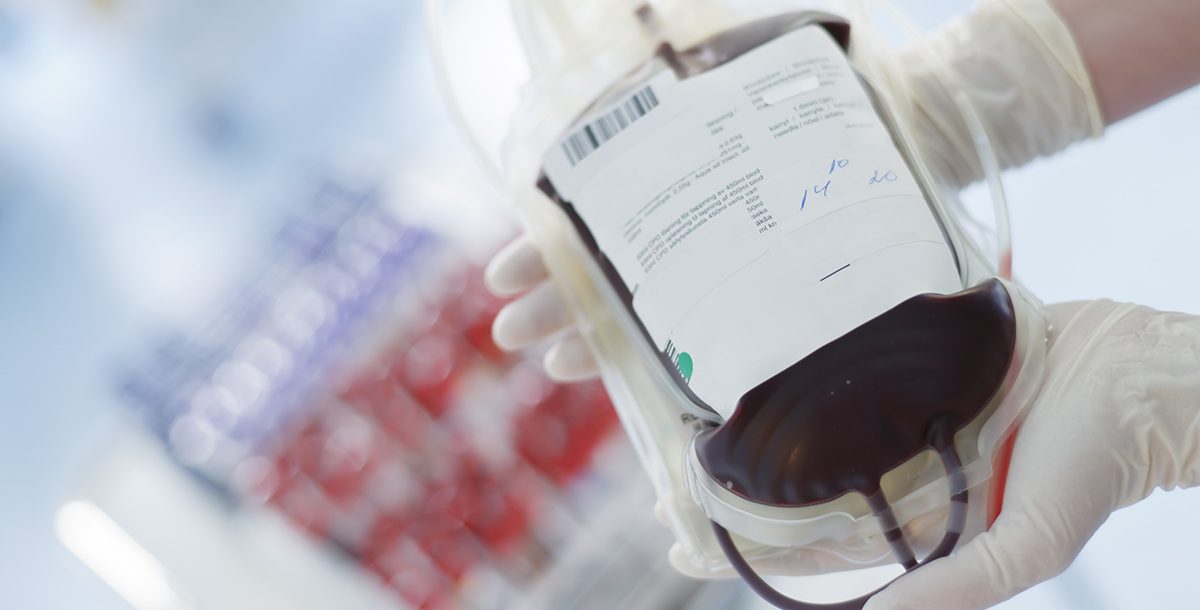Before 1901, doctors thought that blood was the same in all people. However, many people were dying from blood transfusions. This led Karl Landsteiner, a scientist from Austria, to discover that there are different blood types in humans. To successfully get a blood transfusion, people need to receive blood of a compatible type.
Read on to discover the most common blood types and an easy way you can find out your blood type.
First of all, why are there different blood types?
Your blood has proteins in it called antigens and antibodies. Antigens live on the surface of red blood cells. Antibodies live in plasma, which is the liquid part of your blood that red blood cells float in.
The types of antigens that are in your blood determine your blood type. And you get your antigens from your parents. So, the type of antigens your mother and father have combine to determine what blood type you have.
The classification system for naming blood types was created so that people can have safe blood transfusions. You might need a blood transfusion if you’ve had a serious injury or surgery, or if you have a blood disease.
How many different blood types are there?
Humans can have more than 600 different types of antigens in their blood. However, only two are the most common: A antigen and B antigen.
Blood types are also classified by another antigen called Rh factor. If your blood has the Rh antigen, your blood type is called positive. If it doesn’t have the Rh antigen, it’s called negative.
The presence or absence of A and B antigens and the Rh antigen make eight blood types. And most people have one of these eight blood types.
Blood groups and their characteristics
Here are the eight different blood types and what they mean. They’re listed from the most common to the least common type in the United States:
O+: This is called O positive, and it’s the most common blood type in the U.S. because 37.4 percent of Americans have it. People with O+ blood can give blood to anyone who has a positive blood type.
A+: People with A positive blood can donate to people with A+ and AB+ blood, and 35.7 percent of the U.S. population has this blood type.
B+: This blood type can be given to people with B+ and AB+ blood, and 8.5 percent of Americans have it.
O-: Only 6.6 percent of Americans have O negative blood, and they can donate to people of all blood types. This is why people with O- blood are called universal blood donors. It’s also usually in short supply since it’s used in many emergency situations when there’s no time to test someone’s blood type.
A-: People with this blood type, which totals 6.3 percent of Americans, can give blood to others with A and AB blood types.
AB+: Individuals with AB+ blood are called universal recipients because they can receive blood and plasma of any type. Only 3.4 percent of the U.S. population has AB+ blood type.
B-: This is another rare blood type that 1.5 percent of Americans have. People with B negative blood can donate to people with both B and AB types of blood.
AB-: This is the rarest blood type; only 0.6 percent of Americans have it. However, people with AB- blood are called universal plasma donors because they can give plasma to people with any blood type. They can give blood to anyone with AB blood types.
An easy way to find out your blood type – donating blood!
You don’t need to know your blood type before donating blood, which is a common myth. In fact, you will find out your blood type after you make a donation, if you don’t already know.
By donating blood, you can save someone’s life. Did you know with just a single blood donation you can save the lives of three people?
There is currently a critical need for blood donations as the American Red Cross faces its worst blood shortage in over a decade. If you are able to, please consider becoming a blood donor. Visit the American Red Cross website to learn more.
Also, visit the Mercy Health website to learn more about our ministry.






